Mic drop!
At The Ink, we spend a lot of time talking to the smartest, most thoughtful people out there, and while there is only so much space on the page (even in an email newsletter), our guests often get a lot deeper into the most important topics of our time than we have room for. So we’ve been thinking a lot about the best way to give you the whole story, and we’ve decided to launch a podcast so you can listen in on the full conversations we’re having on the issues that really matter.
We’ll be bringing you more audio posts over the weeks and months to come, but to get things started, we invite everyone to enjoy the full audio version of our conversation with journalist and new media company co-founder Mehdi Hasan.
You can listen to the interview right here in the Substack app, or you can use your favorite podcast app. Find us on Spotify, Apple Podcasts, or YouTube (and on most other platforms). Or just add our RSS feed to the app of your choice.
We hope you enjoy the discussion. And we encourage you to let us know what you think.
Mehdi Hasan has long been a relentless advocate for context. As a host and commentator for the BBC, Al Jazeera, and MSNBC, Hasan has always challenged assumptions and filled in historical blind spots, with a devotion to doing the extra research and a willingness to speak truth to power. Now he has left his corporate media days behind him and has launched his own, independent media company, Zeteo, which aims to take on some of the most difficult reporting challenges of our time, focusing on democracy and human rights.
In this conversation, Hasan talks to us about how he views the student protests, what American responses to the Ukraine and Gaza wars tell us about the limits of empathy, the challenges of reporting the news in an age of threats to democracy, how many admire activists only once they’re dead, and why it’s so so difficult to have a debate with opponents who can’t even agree on basic truths.
A request for those who haven’t yet joined us: The interviews and essays hat we share here take research and editing and much more. We work hard, and we are eager to bring on more writers, more voices. But we need your help to keep this going. Join us today to support the kind of independent media you want to exist.
In this moment we face an election that is as high-stakes as anything in our lifetimes, a war that, like the election, is a complete Rorschach test with different people seeing different realities. Then we have these protests over the war, creating more parallel realities. How would you assess the state of the American media that is covering and processing all of this?
The media is struggling both for understandable reasons and reasons of its own making. Look, I've been very critical of the U.S. media in particular. I was critical when I was at MSNBC, and I've been critical since I left MSNBC. But I also defend the media when it needs to be defended from bad-faith actors or lazy criticisms. We're in a historic moment, and you can add to that list you laid a once-in-a-century pandemic, but everything that was once in a century is now once every year or every month. So it is hard for a media industry that's struggling with retaining viewers and readers, struggling with budgetary issues, struggling with an advertising market, to cover all of this stuff. It’s just a bandwidth issue.
Is our media industry fit for purpose? No. We don't, for example, have a sense of history. We struggle with context. Explanatory journalism bumps up against people worried about biases and impartiality and the view from nowhere. And at a moment when we really need to take stock of the threats to our lives, to our planet, to our democracy, we have a bunch of media organizations that are super cautious, super unable, often unwilling to do that.
Do you believe that we're actually in a new kind of time where the habits and skills you and I were trained in are inadequate? Do the ways you and I were trained to ask questions, or synthesize an argument, or report on a speech, just not work anymore?
They certainly don't work. And anyone who thinks they work is being naive or a fool or is lying to you. I'll give you one example. When I was at MSNBC, we did a fair few stories on Ron DeSantis while he had his catastrophic car crash of a presidential campaign. And at NBC and most major media news organizations, the rule book says go for the right to response. You're talking about a political candidate, go get a response from the campaign. But guess what? The DeSantis campaign hates the media and the DeSantis campaign bullies the media and the DeSantis campaign doxxes reporters, puts out reporters' emails on social media, and turns mobs against them. So we didn't do that. I said to my team, "We're not going to the DeSantis campaign for comment."
Why would I do that? Why would I expose a young member of my team to that kind of vitriol or abuse or mockery? When we are confronted by an authoritarian movement that is anti-free speech, anti-free press, anti-reality in many ways. We can't use the same playbook to deal with that. The reason why there are so many media fails now — and it is every time — is because a journalist or an interviewer or a media organization is trying to play by the old rules.
Recently, my former employer, NBC, had this chaotic moment where they hired Ronna McDaniel to be a pundit. Ten years ago, no one would've blinked an eyelid. That’s a great get! Former chair of the RNC at a liberal network? What a great get. There'd be no debate about it. And, clearly, internally, there wasn't a debate when they hired her, but once they announced it, everyone went, "This is crazy. You can't have a woman who was involved in the fake election scheme, who didn't accept the election result, to come on a straight news organization, NBC News, and offer analysis."
When we're living in a world like this, journalists need to be able to call a spade a spade, be blunt, and dodge euphemisms. One of the reasons I set up Zeteo is precisely for this reason, our inability to use language as it was supposed to be used, our shying away from stating up is up, down is down, rather than saying, "Hot is cold, black is white."
When these are the stakes, we're going to seem — to reasonable people who are not paying that much attention — as if we are trying to help a campaign. And we don't want that. But it's going to happen, isn't it?
It is going to happen. I would go a step further. You said that's not our motive. Actually, it should be our motive. The Fourth Estate is not neutral on democracy. The free press is not a disinterested observer of the end of democracy. We are part of the democratic system. There was a reason we were called the Fourth Estate. There's a reason why Thomas Jefferson said, "Were it left to me to decide whether we should have a government without newspapers or newspapers without a government, I should not hesitate a moment to prefer the latter." We can't have democracy without a free press.
There's a force in our society that is threatening the free press, and this is not euphemistic, this is the guy running for office threatening reporters with rape. He said NBC and MSNBC “should be investigated for its ‘Country Threatening Treason.’" When you have that candidate, when you have literal governors, Republican governors who have assaulted journalists, in the case of the governor of Montana, Gianforte.
The editor of your former newspaper caused some controversy recently by suggesting that democracy is just one among many issues. Democracy is just up there with crime and immigration and healthcare and the economy, and it's number four on the list so we give it number four importance.
A truly embarrassing answer from someone who should know better. A dereliction of duty from the editor of the paper of record. Look, he is worried about the issue you just raised. He doesn't want to be seen as a Democrat, capital D. My point is we are democrats, small d, and we shouldn't be afraid of saying that.
To be clear, if you were the editor of The New York Times instead of Zeteo right now, and you were giving that interview, would you answer, “Yes, given the stakes, it should be the job of The New York Times right now to make sure Joe Biden is re-elected?”
No, no, no, no. With respect to Ben Smith, I think it’s a bit of a straw man question. I don't think it's the job of The New York Times to elect Joe Biden. I think it is the job of The New York Times to point out a demonstrable, undeniable fact: Joe Biden supports democracy and Donald Trump doesn't. That is not opinion. That is fact. Now, if Times readers still want to vote for Donald Trump after that, good luck to them.
For the full, two-part edited transcript of our interview, click through the links below.
Your support makes The Ink possible. We’d be honored if you’d become a paid subscriber. When you do, you’ll get access each week to our regular posts and our interviews with the most thoughtful people out there — and you’ll be able to join the conversation in our comments section.


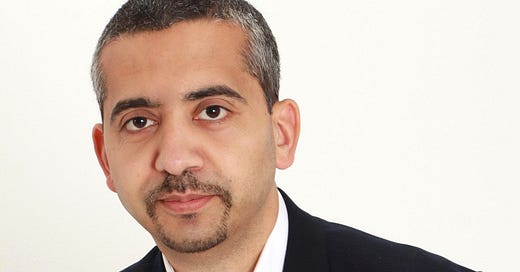


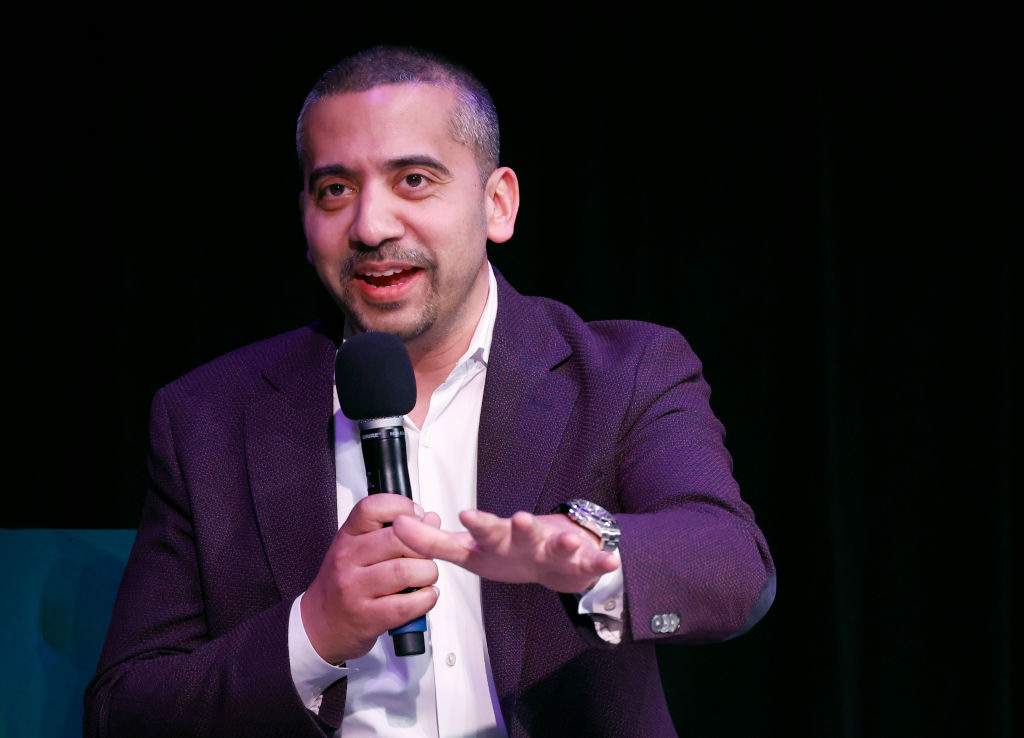
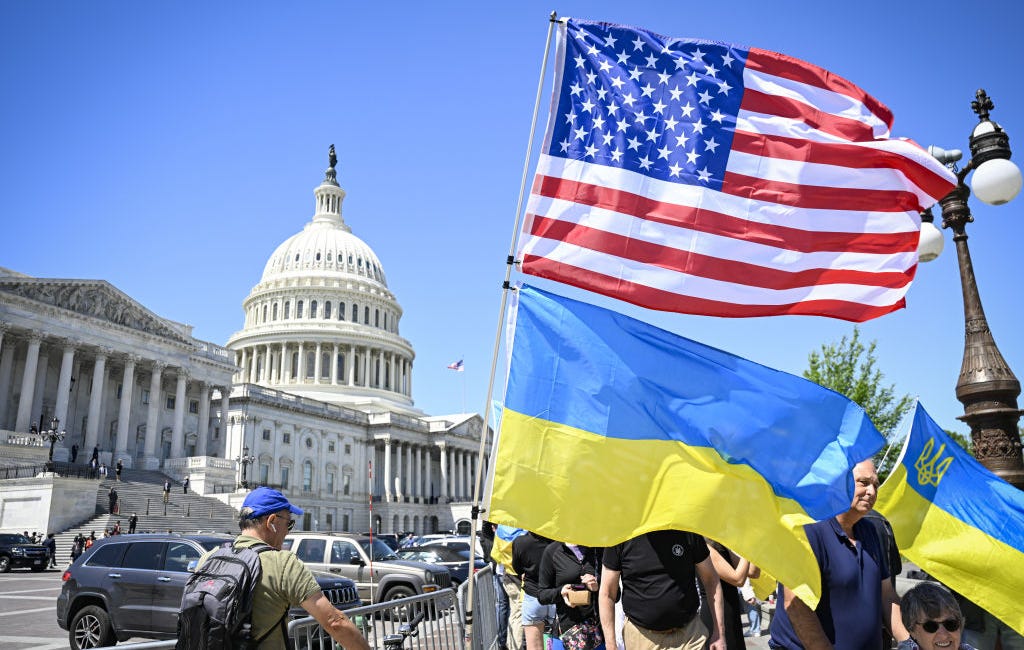
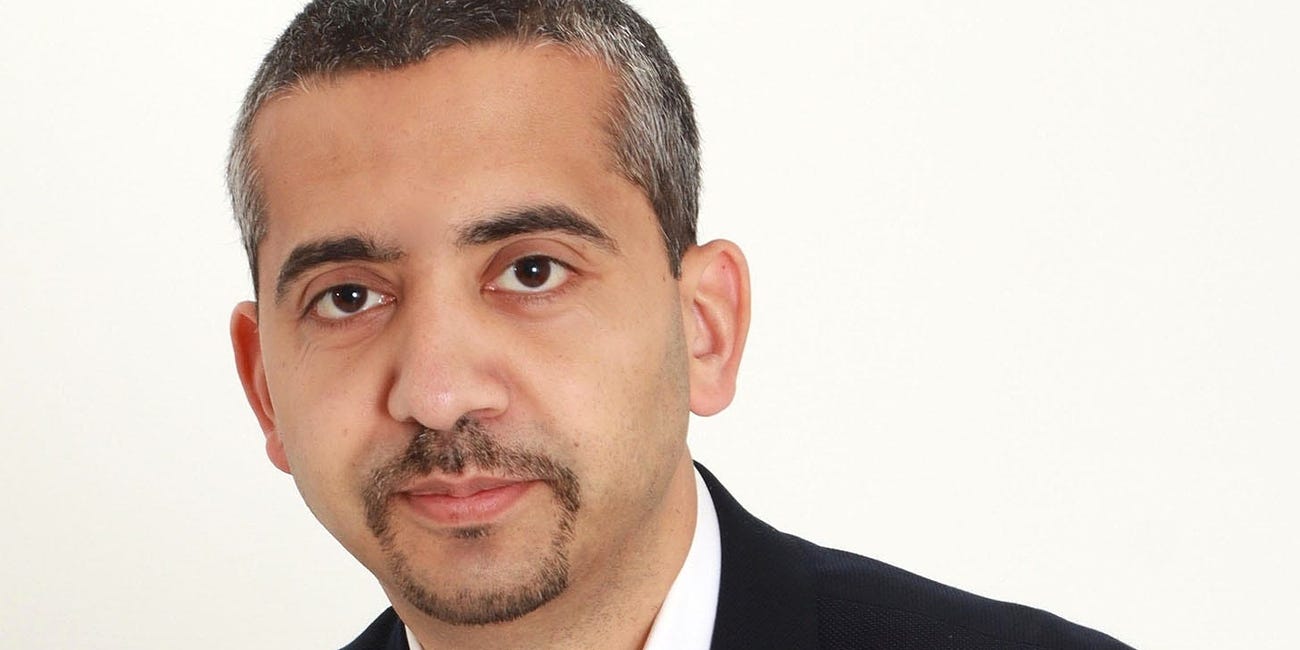


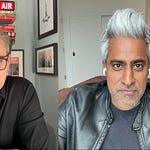
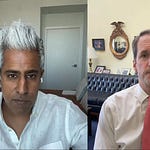

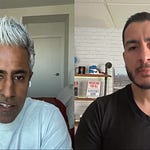
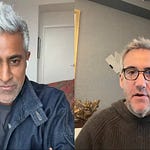
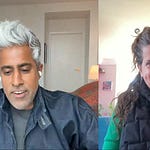
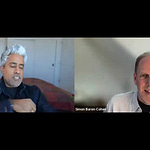
Share this post